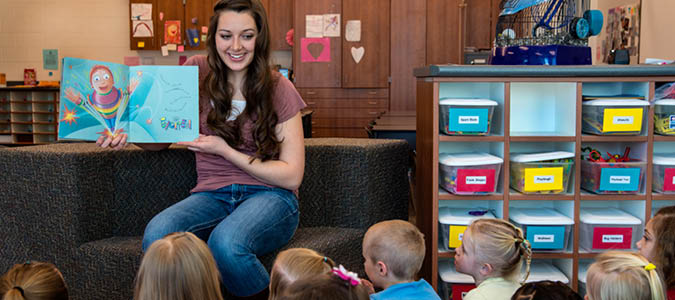Teacher preparation is a top issue among education leaders—not just for K-12, but for higher education as well. The issue rose to the top of several higher education issues at a recent roundtable event hosted by the Utah Business Magazine.
Weber State University President Chuck Wight observed, “Right now we have 1,240 computer science majors, but only 15 faculty members. That’s an 80:1 ratio. The demand stretches our institutions in important ways.” He continues, “No teacher that I know of ever went into the profession for money. They always do it for the love and for the respect. But we have a national conversation right now which is getting nastier and nastier. The respect for the profession has taken a big blow.”
President Deneece Huftalin described incentive efforts at Salt Lake Community College to try to get more students to pursue the teaching profession: “We give them free tuition and the foundations of the districts pay for all their books… But I have to say after 10 years, we’ve not seen a huge influx in that pipeline.” She summarized, “They don’t stay. I think it has to be much more of a statewide commitment to the professionalization and credibility of teachers.”
The Utah System of Higher Education and the Utah State Board of Education have partnered with the Network for Transforming Educator Preparation (NTEP) to improve the workforce upon entry into the education profession. Utah is one of 14 states that have joined the consortium which includes prominent partners such as the Council of Chief State School Officers (CCSSO), the National Governors Association (NGA), and the National Association of State Boards of Education (NASBE).
In 2012, CCSSO convened a Task Force on Transforming Educator Preparation and Entry into the Profession, issuing a call to action to chief state school officers (e.g., state superintendents) and identifying specific steps that states should take to improve the workforce upon entry into the education profession.
Utah leaders are using the CCSSO report as the foundation for their efforts. The partnership is a K-20 effort with high-level involvement by State Superintendent Syd Dickson and Elizabeth Hitch, USHE Associate Commissioner for Academic and Student Affairs. Diana Suddreth, USBE Director of Teaching and Learning, co-chairs the partnership with Hitch. This expansive partnership includes curriculum specialists, licensing directors, superintendents, education deans, and teachers. Its efforts are focused on teacher preparation and support in specific areas of pre-clinical experience, licensure (including alternative routes), in-field mentoring and teacher assessment. Education leaders acknowledge this is likely the most engaged effort to improve the teacher pipeline and will take several years and added resources to accomplish its objectives.
The initiative has garnered state legislative attention. At last week’s Education Interim Subcommittee, partnership representatives provided an overview presentation of the NTEP initiative. Committee co-chair Senator Ann Millner commented, “I appreciate the fact you’re looking at the continuum here, that it’s not just day one at the school but to make sure we are looking at how to retain them; critically important.” Senator Millner has filed a bill for the 2017 legislative session in anticipation of working with higher education and K-12 leaders.


